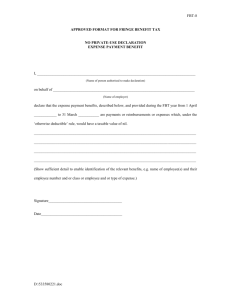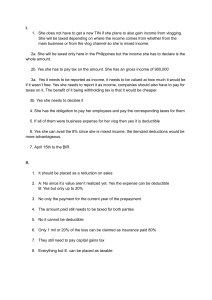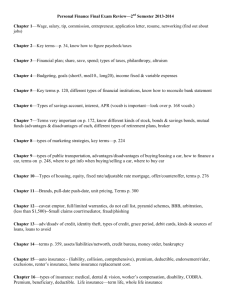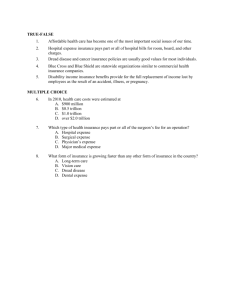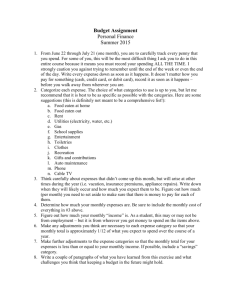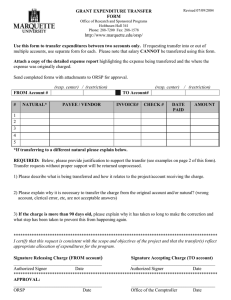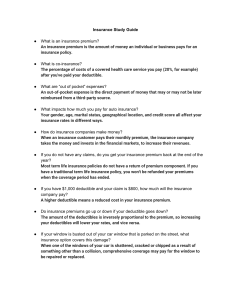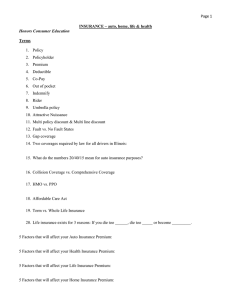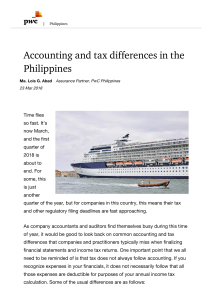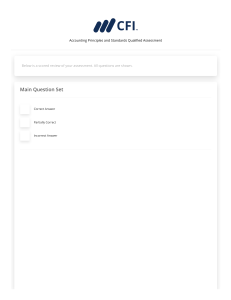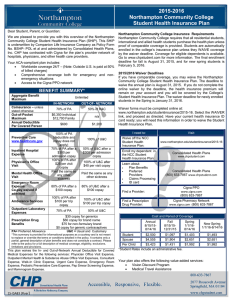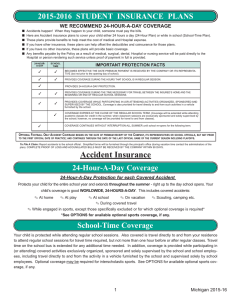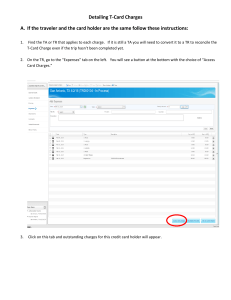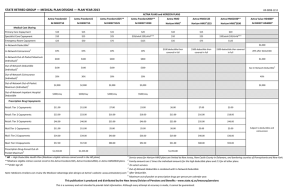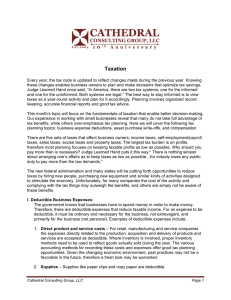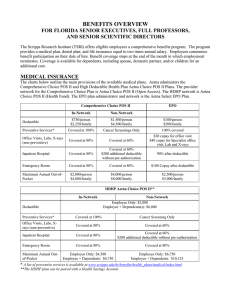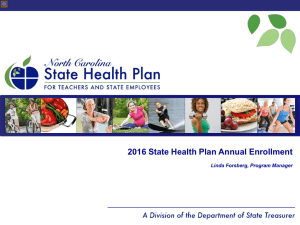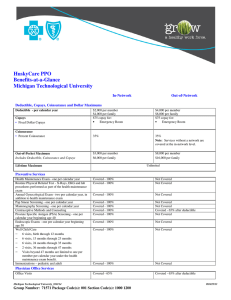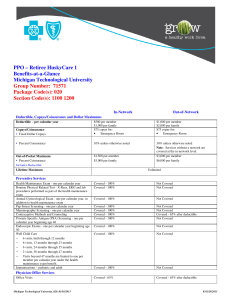Document 10392396
advertisement
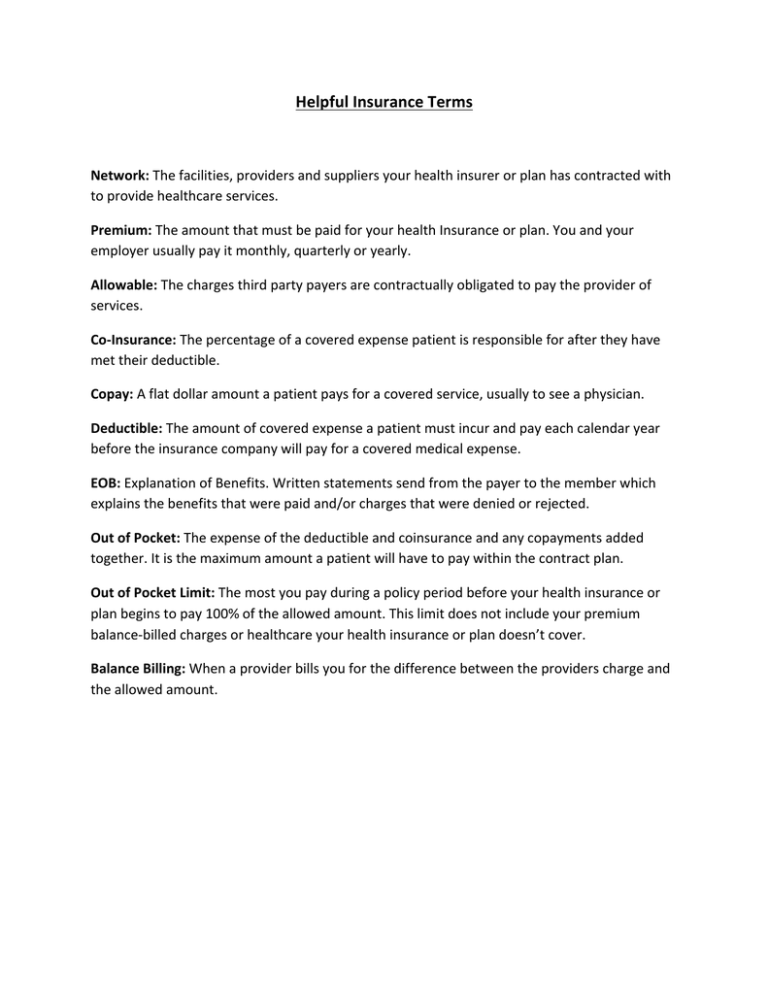
Helpful Insurance Terms Network: The facilities, providers and suppliers your health insurer or plan has contracted with to provide healthcare services. Premium: The amount that must be paid for your health Insurance or plan. You and your employer usually pay it monthly, quarterly or yearly. Allowable: The charges third party payers are contractually obligated to pay the provider of services. Co-­‐Insurance: The percentage of a covered expense patient is responsible for after they have met their deductible. Copay: A flat dollar amount a patient pays for a covered service, usually to see a physician. Deductible: The amount of covered expense a patient must incur and pay each calendar year before the insurance company will pay for a covered medical expense. EOB: Explanation of Benefits. Written statements send from the payer to the member which explains the benefits that were paid and/or charges that were denied or rejected. Out of Pocket: The expense of the deductible and coinsurance and any copayments added together. It is the maximum amount a patient will have to pay within the contract plan. Out of Pocket Limit: The most you pay during a policy period before your health insurance or plan begins to pay 100% of the allowed amount. This limit does not include your premium balance-­‐billed charges or healthcare your health insurance or plan doesn’t cover. Balance Billing: When a provider bills you for the difference between the providers charge and the allowed amount.
